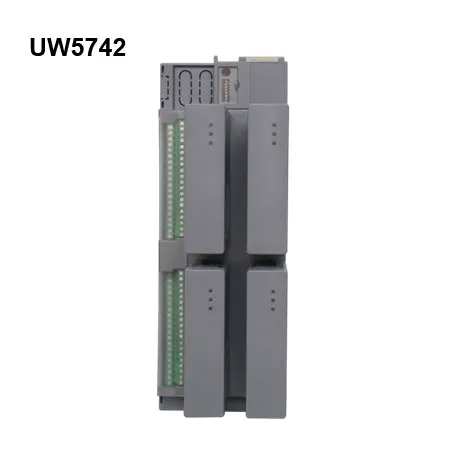What Makes a Distributed Control System Essential for Modern Industrial Automation?
2024-11-13
In today’s fast-paced industrial world, efficiency, reliability, and scalability are more important than ever. As industries continue to evolve, the demand for more sophisticated and flexible control systems has grown exponentially. Enter the Distributed Control System (DCS)—a technology that is revolutionizing the way complex processes are managed in industries such as manufacturing, oil and gas, power generation, and chemical processing. But what makes a DCS essential for modern industrial automation, and why is it increasingly becoming the standard for large-scale operations?
What is a Distributed Control System?
A Distributed Control System (DCS) is an automated control system that decentralizes the control and management of various processes across multiple subsystems. Unlike traditional centralized systems, where control is handled by a single central unit, a DCS distributes control functions across a network of controllers, which are connected to sensors and actuators. These controllers communicate with each other and work together to control and monitor the process, providing greater flexibility, reliability, and scalability.
DCS is particularly useful in complex industrial environments where a large number of processes or units need to be controlled simultaneously. It integrates a variety of components, such as sensors, programmable logic controllers (PLCs), human-machine interfaces (HMIs), and supervisory control and data acquisition (SCADA) systems, into a cohesive, automated control solution.
Why is a Distributed Control System So Important?
1. Scalability and Flexibility
One of the standout features of a DCS is its scalability. Industrial processes often grow and evolve over time, requiring control systems to adapt accordingly. A DCS allows for easy expansion by adding new controllers and subsystems without disrupting the overall system. This scalability ensures that a DCS can handle everything from small, simple processes to large, highly complex systems.
Moreover, DCS systems are flexible enough to accommodate different types of industrial environments and processes. Whether it's continuous production, batch processes, or hybrid systems, a DCS can be customized to meet the specific needs of various industries.
2. Improved Reliability and Redundancy
In industries where safety and uptime are critical, reliability is paramount. A key advantage of DCS is its ability to incorporate redundancy at multiple levels. This includes redundant controllers, power supplies, and communication networks, ensuring that if one part of the system fails, others can take over seamlessly. This level of redundancy increases system reliability and minimizes downtime, making DCS systems ideal for mission-critical applications.
Furthermore, DCS systems often have built-in diagnostic tools that continuously monitor the system’s health, alerting operators to potential issues before they become major problems. This proactive approach to maintenance enhances overall system reliability.
3. Enhanced Process Control and Monitoring
With a DCS, operators can monitor and control processes in real-time from a centralized or distributed control room. The system provides comprehensive data and feedback on process variables such as pressure, temperature, flow rates, and levels, which are critical for maintaining optimal operations. Operators can adjust control settings, set alarms, and execute automatic control strategies with a few clicks, improving process efficiency and reducing the likelihood of human error.
Moreover, advanced DCS systems offer sophisticated control algorithms, such as proportional-integral-derivative (PID) control, that help fine-tune processes to achieve maximum performance, quality, and energy efficiency. This makes it easier for companies to meet production goals while optimizing resources.
4. Cost Efficiency and Reduced Operational Expenses
While the initial investment in a DCS can be high, the long-term cost benefits far outweigh the upfront costs. By integrating all control functions into one system, DCS reduces the need for separate controllers, wiring, and maintenance schedules. The system's flexibility also allows for more efficient use of resources, reducing energy consumption, material waste, and labor costs.
Additionally, the data collected by DCS systems can be analyzed to identify inefficiencies or potential savings opportunities, allowing companies to continuously optimize their processes. This can result in significant operational savings over time.
5. Easier Integration with Other Systems
In large industrial operations, there are often multiple systems and technologies at play, from inventory management systems to enterprise resource planning (ERP) software. One of the strengths of DCS is its ability to seamlessly integrate with other systems, enabling real-time data exchange and enhancing overall operational efficiency.
For example, DCS can be integrated with enterprise-level databases to track production performance, manage inventory, and even forecast future demand. This integration creates a more cohesive and automated production environment, where data flows smoothly across different platforms, enhancing decision-making processes.
6. Real-Time Data and Advanced Analytics
In the modern industrial landscape, data is everything. A DCS allows operators to collect real-time data from every part of the process and store it for later analysis. This data can be used for advanced analytics, predictive maintenance, and performance optimization.
For instance, by analyzing historical data, operators can identify trends and patterns that might indicate an impending issue or an opportunity for improvement. Predictive analytics can also forecast equipment failures before they happen, allowing for maintenance to be scheduled before a breakdown occurs, thus avoiding costly downtime and production delays.
Applications of Distributed Control Systems
DCS systems are employed across a wide range of industries due to their adaptability and effectiveness. Some of the most common applications include:
- Oil and Gas: Managing complex drilling, refining, and transportation processes while ensuring safety and regulatory compliance.
- Power Generation: Control of power plants, including steam, hydroelectric, and nuclear plants, to ensure stable and efficient power generation.
- Chemical Processing: Managing chemical reactions, temperature, pressure, and other variables to maintain product quality and safety.
- Food and Beverage: Automation of production lines, inventory control, and quality assurance to ensure high standards of hygiene and efficiency.
- Water Treatment: Monitoring and controlling water filtration, chemical dosing, and distribution to ensure clean and safe water.
Conclusion
In an age where industries are becoming increasingly automated and interconnected, Distributed Control Systems (DCS) offer the flexibility, reliability, and scalability necessary to meet the demands of modern industrial operations. By decentralizing control, improving real-time monitoring, and providing seamless integration with other systems, DCS helps businesses optimize processes, reduce costs, and improve safety and efficiency.
As industries continue to push the boundaries of what’s possible in terms of automation and process control, it’s clear that DCS will remain a cornerstone of modern industrial technology. Whether you're in energy, manufacturing, or any number of other sectors, the value of a well-implemented DCS cannot be overstated.



